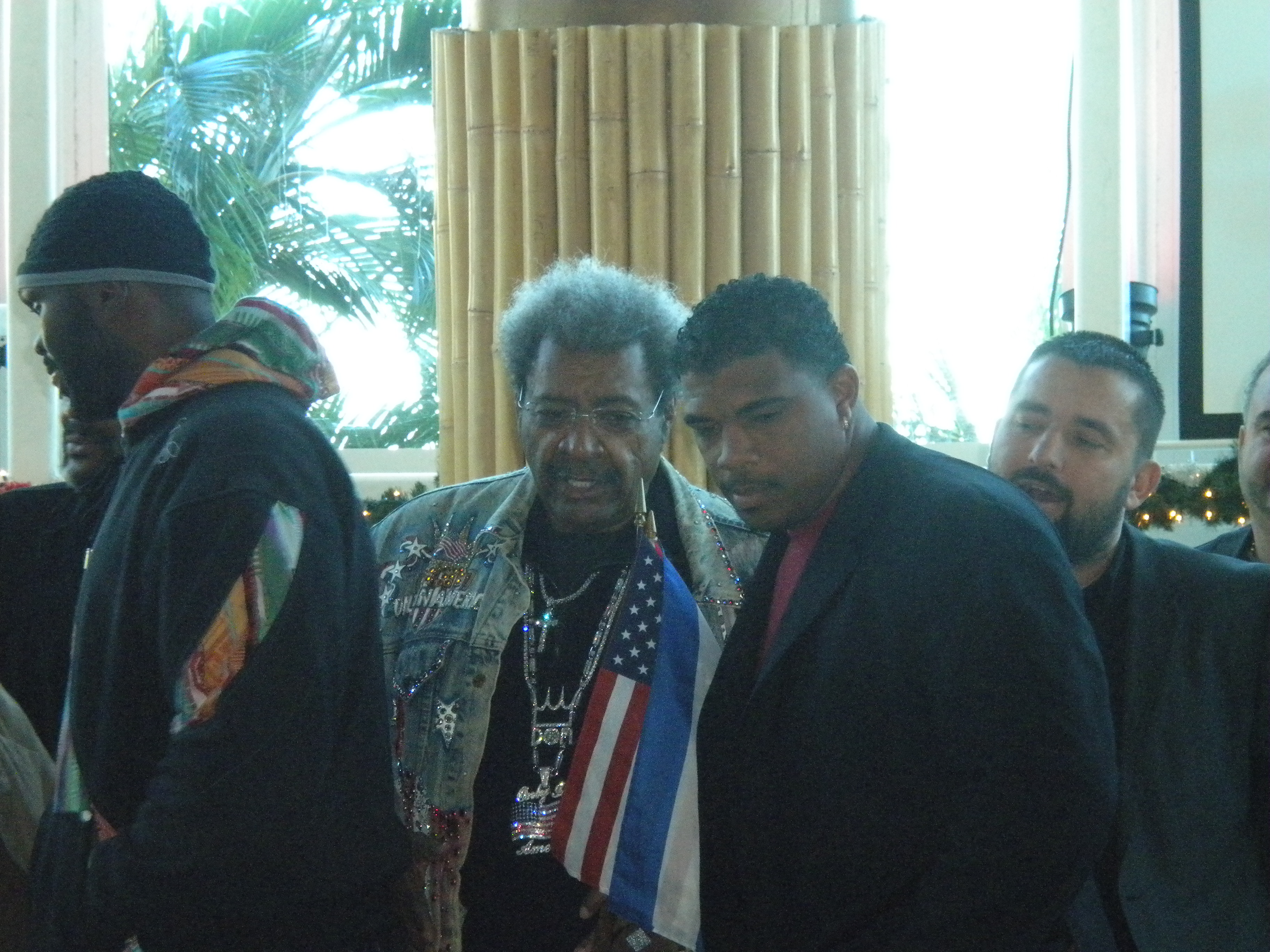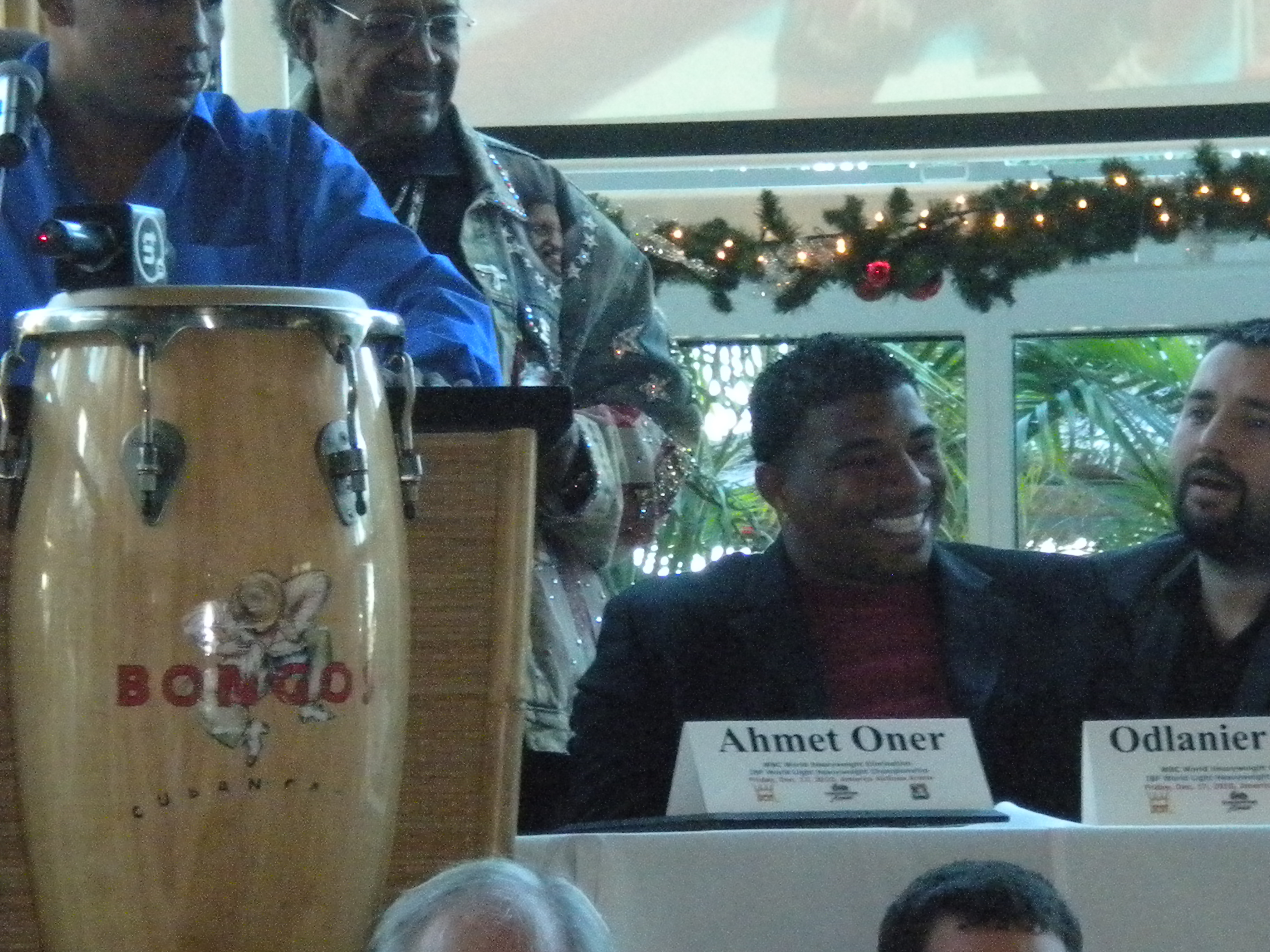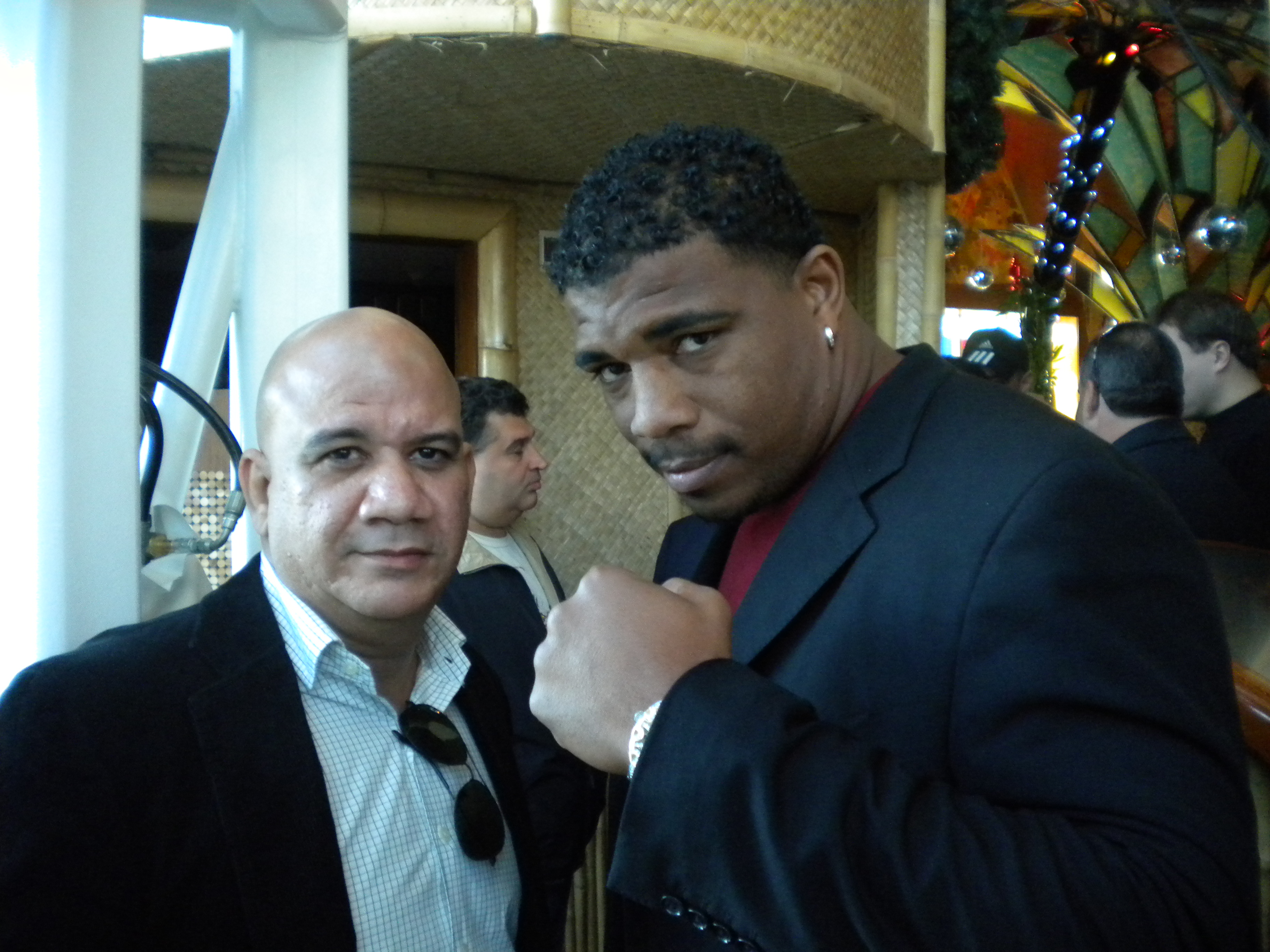José Antonio Quintana de la Cruz
The draft guidelines of economic and social policy that will be discussed by the sixth congress of the Communist Party have been circulated for public discussion. Some believe that it contains nothing new, is not conducive to substantive change and is more of the same but tinged with tones that have been imposed by mass unemployment and the existing crisis, that they are short term rescue modifications. It seems that seen from expectations based more on wishes than sober assessments of reality, this may be true. But it never occurred to me that the Communist Party would discuss at a conference the abolition of socialism and the transition to a capitalist market economy.
An objective analysis of the document reveals that it contains substantive developments. But it is necessary to define what is novel. For this editor all that appears in the project that did not exist or was not permitted in the model that this seeks to overcome or modify; or update, as the official discourse has it, is new. According to this criterion, twenty percent of the guidelines contain new features that can induce changes in the operation or the quality of the system. The remaining eighty per cent proposes to rectify long standing shortcomings and imperfections.
It is clear that the document proposes a diversification and expansion of property relations, which in Marxist terms are relations of production. It recognizes the right of existence of small businesses in various sectors of the economy without employment limits. The figures of landlord, tenant and contractor appear. The area of action of the cooperatives of transport, trade and other sectors are extended, while freedoms and options are granted to those cooperatives which lack them, without which it would be a fiction.
The fact that individual proprietors and partners can compete, produce and sell, protected by law, that they can create companies to supply them and import what they need, together with a concession to receive bank credits, the fact that these private enterprises have business relationships with state enterprises and with the population, creates a market, embryonic and imperfect, but a market that will no longer be the suppressed variable of the economy, but a necessary and legally protected part of the economy.
This is new in Cuba. In my view, this social experiment, replaces the old debate between Von Mises and Oscar Lange about the possibility of a real and efficient economic calculation in a socialist economy. As is known, Lange believed that a regulated market subject to planning would make economic calculation possible under socialism. Von Mises asserted that this was impossible because socialism was a mistake. China has brought experience to the theoretical debate. In this great Asian country there is a market socialism which performs efficient economic calculations and where the socialist character is more related to distribution forms designed by the party and state that by the ownership structure under which it occurs.
But the guidelines under discussion do not suggest a socialism of the market in Cuba, but a socialism with a market. This market, according to the project, will be a minority partner in social enterprise and shall be subordinate to planning which will remain the main form of movement of the economy and its relations of production. Planning which, incidentally, can stop being inefficient in the sense of failing to ensure proportionality and balance in the economy, sand must take care of not being totalitarian and authoritarian, but flexible, coordinated, cooperative, and with reservations.
The challenge facing Cuban planning is great not only because it must reconcile the statistical survey methods and strategies of state scenarios with price signals emitted by the market, but because the freedoms, which is to say the degree of autonomy that the draft gives to state enterprises, should become actors and decision makers responsible for their success or failure. Under the project, state enterprises will not able to impose a plan, or have their earnings taken over, nor may the state interfere in its administration directly. It is assumed that the party can not do that either.
State owned enterprises with sustained losses will be liquidated. This is also new. But we need to define how long is needed to define these losses as “sustained”.
Guideline number three, which prohibits the concentration of ownership without mentioning exceptions, contradicts number twenty nine, which authorizes the cooperatives, which in turn contradicts number twenty six. Contradictions may be intentional, designed to promote discussion. I wish it were so!
The ban on ownership concentration may be aimed at preventing the formation of oligarchies, which in Russia was disastrous. Or it may be intended to protect free competition, promoting competition and its beneficial effects on prices and product quality as well as on creating jobs in a society where both are needed. If there is a motivation to interfere with the concentration of private production and thus the reproduction of capitalism according to the Leninist school, then this sector of the new economy would be condemned a prior to stagnation.
I think that if everything that the guidelines indicate or suggest is done, Cuba’s economy will be more robust and efficient. The problem is that Cubans are accustomed to agree marvelously, to make speeches with logical arguments, and then to make the thing, violating and mocking, openly, or veiled, that which was agreed to or discussed. It is a corruption of custom to be serious and make commitments with responsibility, coupled with the widespread lack of social discipline that does not escape anyone.
In conclusion, the projected guidelines propose a model of a socialist planned economy with the presence of state enterprises, cooperatives and private enterprises, with a predominance of the former, and in which a regulated market operates involving all types of economic agents allowed by law. You can like this model or not, but it is nothing more than more of the same. It unleashes forces that have been pent up until now. It introduce variables of an unprecedented quality. It employs measures of efficiency and control that can be viewed with ideological ill will. It creates opportunities for the exercise of managerial freedom and responsibility. And it has flaws and limitations for which its promoters have sought criticism. This is what I am doing: Trying to be constructive.
Translated by ricote
November 25, 2010
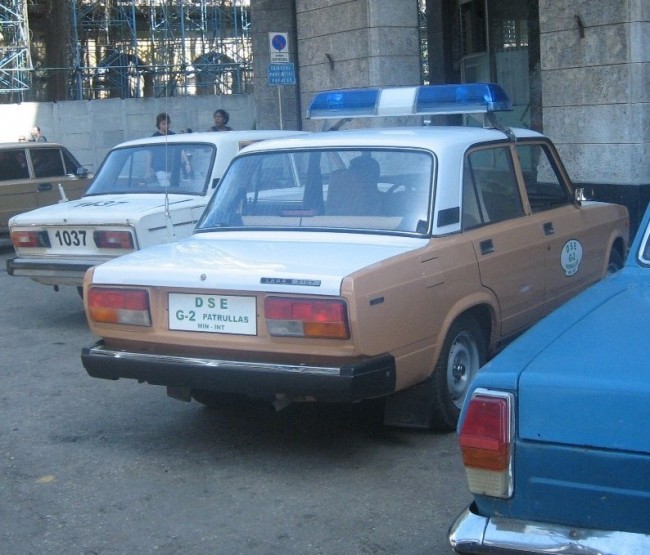


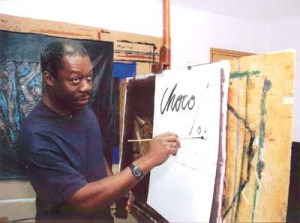 The Villa Manuela Gallery extended until the end of November the exhibition Beyond the border, of the painter and engraver Eduardo Roca Salazar (Choco), who according to N. Echevarria, “returns to drawing and even makes a foray into three dimensionality through a set of “sculptured” figures, the inclusion of “Choir” (2010), anchored in earlier works, in which collagraphy forms a structural axis.”
The Villa Manuela Gallery extended until the end of November the exhibition Beyond the border, of the painter and engraver Eduardo Roca Salazar (Choco), who according to N. Echevarria, “returns to drawing and even makes a foray into three dimensionality through a set of “sculptured” figures, the inclusion of “Choir” (2010), anchored in earlier works, in which collagraphy forms a structural axis.”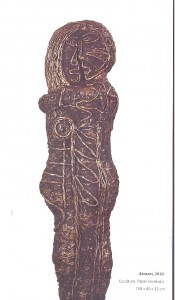
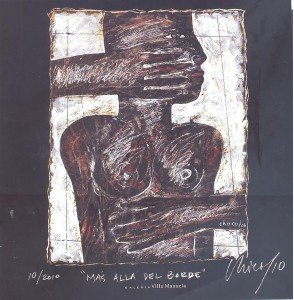
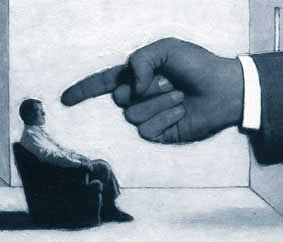 “One accused is presumed innocent, as long as he has not been convicted.” The principle is regulated internationally in the Universal Declaration of Human Rights, but for the Cuban state it is irrelevant, despite having pledged in 1948 to respect the rights contained in it.
“One accused is presumed innocent, as long as he has not been convicted.” The principle is regulated internationally in the Universal Declaration of Human Rights, but for the Cuban state it is irrelevant, despite having pledged in 1948 to respect the rights contained in it.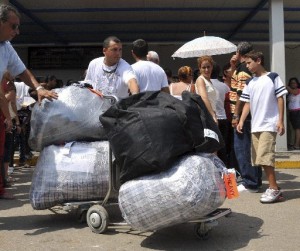 Eliseo, 39, is considered a public benefactor. A guy who is always welcome. For a decade, this Cuban American has been a ‘mule’. He resides in Miami and makes some fifteen trips to the island every year. Sometimes more. Right now, from his mobile phone, he calls his usual driver to pick him up at the entrance to the Jose Marti International Airport, south of Havana. He loads a bunch of bags and briefcases. He will be in Havana for one day. His mission is to unload the 150 pounds of food, medicine, electronics, clothing, shoes and toys, among other things, in a house that he trusts, where later they will take charge of delivering them to their destinations.
Eliseo, 39, is considered a public benefactor. A guy who is always welcome. For a decade, this Cuban American has been a ‘mule’. He resides in Miami and makes some fifteen trips to the island every year. Sometimes more. Right now, from his mobile phone, he calls his usual driver to pick him up at the entrance to the Jose Marti International Airport, south of Havana. He loads a bunch of bags and briefcases. He will be in Havana for one day. His mission is to unload the 150 pounds of food, medicine, electronics, clothing, shoes and toys, among other things, in a house that he trusts, where later they will take charge of delivering them to their destinations.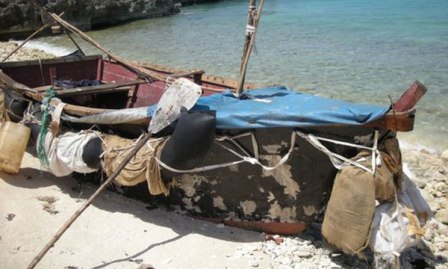 José, with his 35 years, dreams of driving a convertible silver Audi. His eyes are open, it was not difficult for him to come back to reality when his fan stopped due to a blackout. The heat of the night activates his brain. He thought of a solution for his existential problems.
José, with his 35 years, dreams of driving a convertible silver Audi. His eyes are open, it was not difficult for him to come back to reality when his fan stopped due to a blackout. The heat of the night activates his brain. He thought of a solution for his existential problems.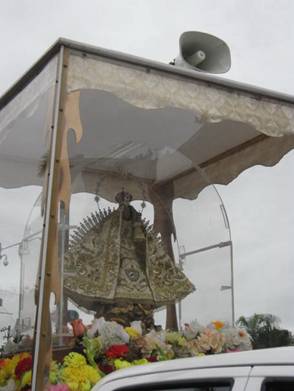
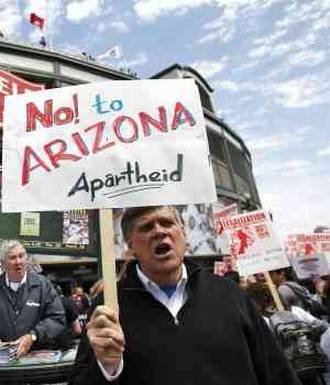 Not infrequently, the Cuban government has spoken out against anti-immigrant laws in developed countries. However, nobody could imagine that there are legal regulations on the island similar to SB 1070, which was passed by U.S. state of Arizona on April 23 and which authorizes state police to arrest people suspected of being an illegal immigrant.
Not infrequently, the Cuban government has spoken out against anti-immigrant laws in developed countries. However, nobody could imagine that there are legal regulations on the island similar to SB 1070, which was passed by U.S. state of Arizona on April 23 and which authorizes state police to arrest people suspected of being an illegal immigrant.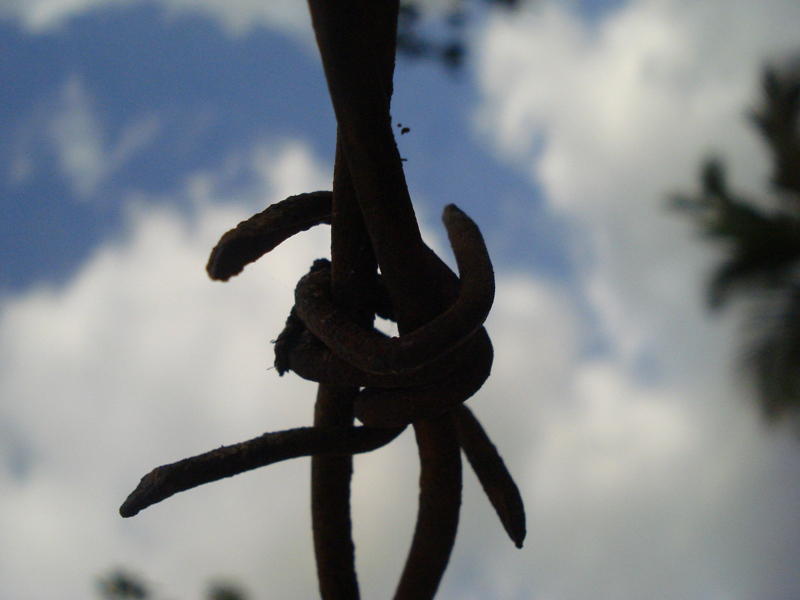
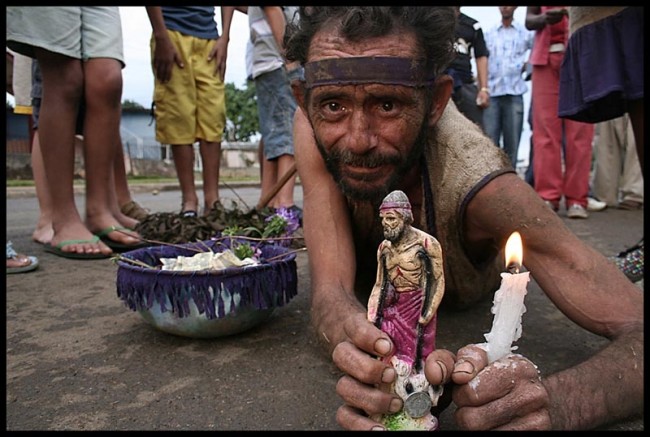

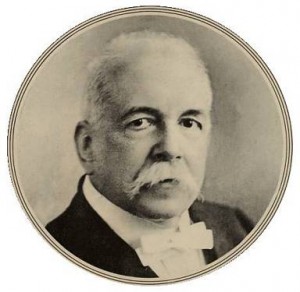
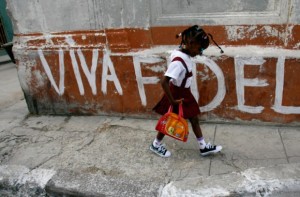 An education system that instills loyalty to the leader, forces children to take an absurd oath and excludes from universities those who do not support their revolutionary pedigree, is like a barricade against intelligence, creativity and individual development.
An education system that instills loyalty to the leader, forces children to take an absurd oath and excludes from universities those who do not support their revolutionary pedigree, is like a barricade against intelligence, creativity and individual development.